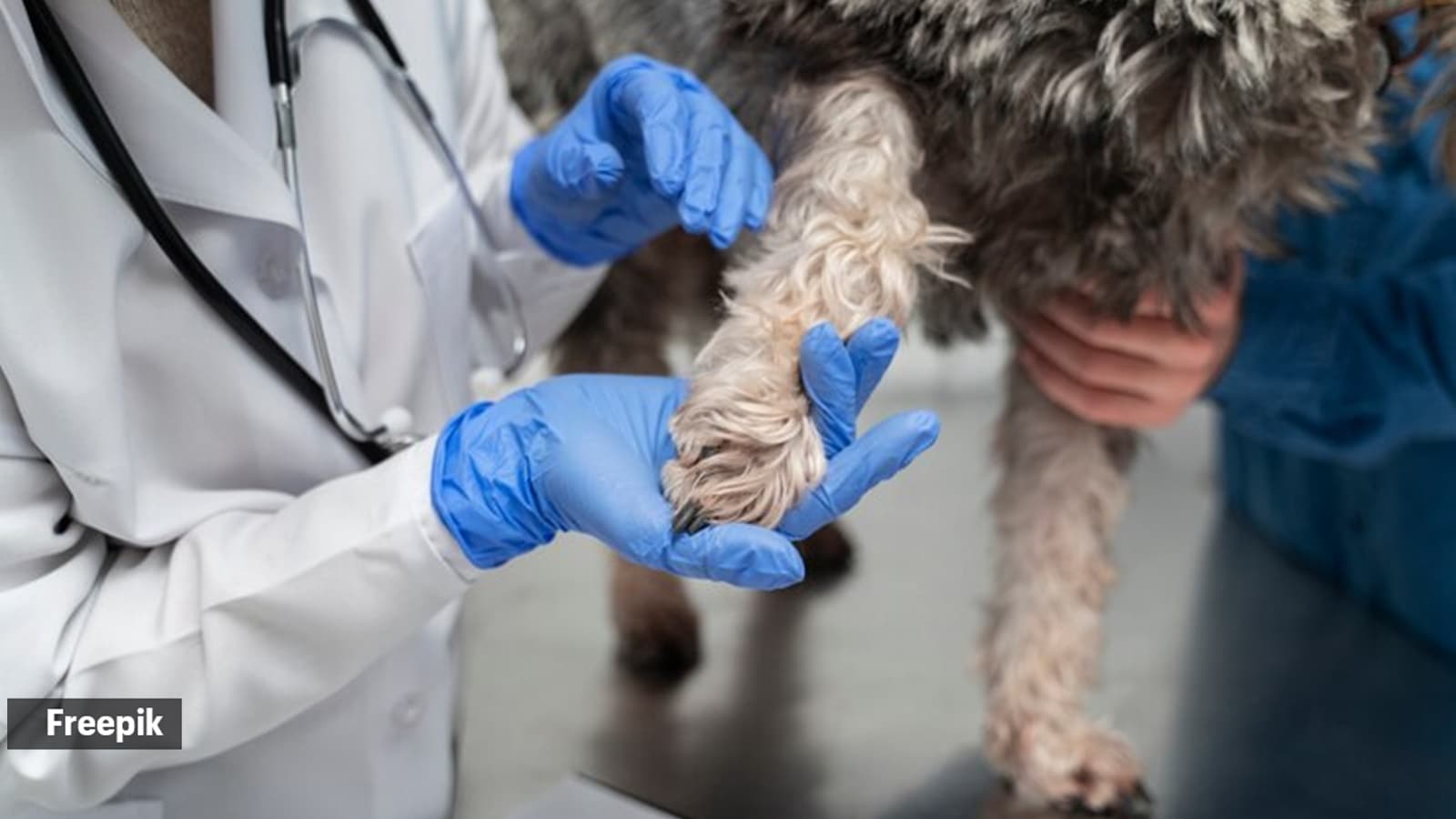📣 For more lifestyle news, click here to join our WhatsApp Channel and also follow us on Instagram
Fact check: Air pollution can cause skin irritation in pets
Regular veterinary visits and consistent bathing and grooming can help keep skin issues at bay, said Dr Shashikant Mulluk, Happy Paws NX Pet Clinic, founder, R3Animalife Foundation
 How does air pollution affect pet's skin? (Source: Freepik)
How does air pollution affect pet's skin? (Source: Freepik) Just like humans, air pollution can cause a range of skin problems in pets, making their lives uncomfortable and even leading to serious health issues, said Dr Shashikant Mulluk, Happy Paws NX Pet Clinic, founder, R3Animalife Foundation.
One common issue is canine atopic dermatitis, which causes redness, rashes, and itching. “Pollutants that stick to a pet’s skin can irritate, while pets with pre-existing skin problems often see a worsening of their symptoms. Allergic reactions are also common, with signs like wheezing, sneezing, watery eyes, and excessive scratching, added Dr Mulluk.
Continuous paw licking is another symptom linked to poor air quality.
What can help?
To protect pets, it is essential to monitor the air quality index (AQI) in your area. If the AQI is poor, restrict outdoor time to 10–15 minutes, said Dr Mulluk.
Ensure your pet has access to clean, filtered air indoors by allowing them to sleep in a room with an air purifier. “Keep them well-hydrated by offering plenty of water, as it helps flush out toxins. Feed them high-quality, nutritious food and consider adding supplements like vitamins and minerals if necessary,” said Dr Mulluk.
 Here’s what to consider when it comes to your pet’s skin (Source: Freepik)
Here’s what to consider when it comes to your pet’s skin (Source: Freepik)
Regular veterinary visits and consistent bathing and grooming can help keep skin issues at bay.
In areas where construction is underway, Dr Mulluk stressed that pets are at an even higher risk of severe skin infections and hair loss (alopecia) due to exposure to cement and dust. “Prolonged exposure to polluted air disrupts the skin’s balance, leading to ongoing inflammation. Over time, this can result in lung diseases, asthma, and bronchitis. Sensitive pets start feeling the effects when the AQI exceeds 100, while values above 150 are dangerous for all pets,” said Dr Mulluk.
Loud noises further stress pets, leading to both physical and emotional distress. “By limiting outdoor exposure, maintaining a clean and safe environment, and ensuring good nutrition and hydration, you can help reduce the impact of air pollution on your pet’s health,” said Dr Mulluk.
DISCLAIMER: This article is based on information from the public domain and/or the experts we spoke to. Always consult your pet’s health practitioner before starting any routine.
📣 For more lifestyle news, click here to join our WhatsApp Channel and also follow us on Instagram



- 01
- 02
- 03
- 04
- 05
























